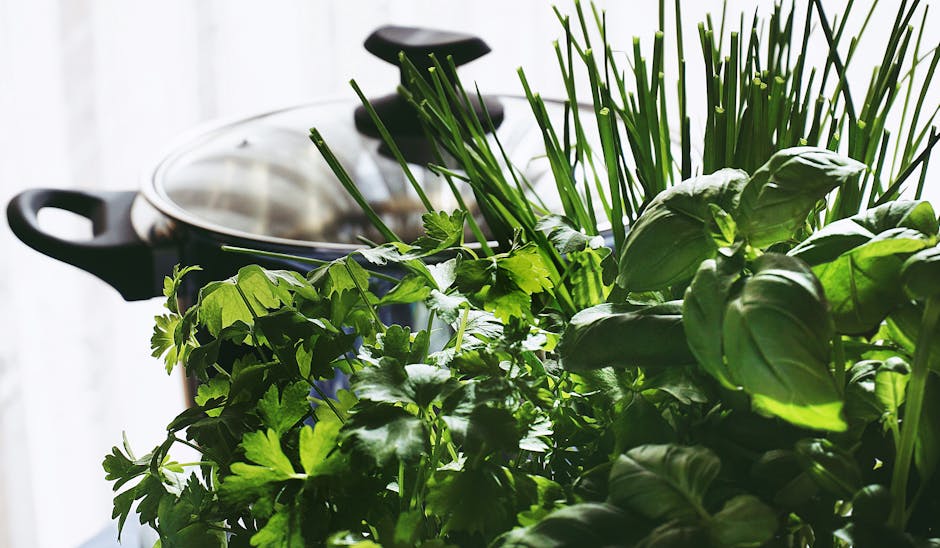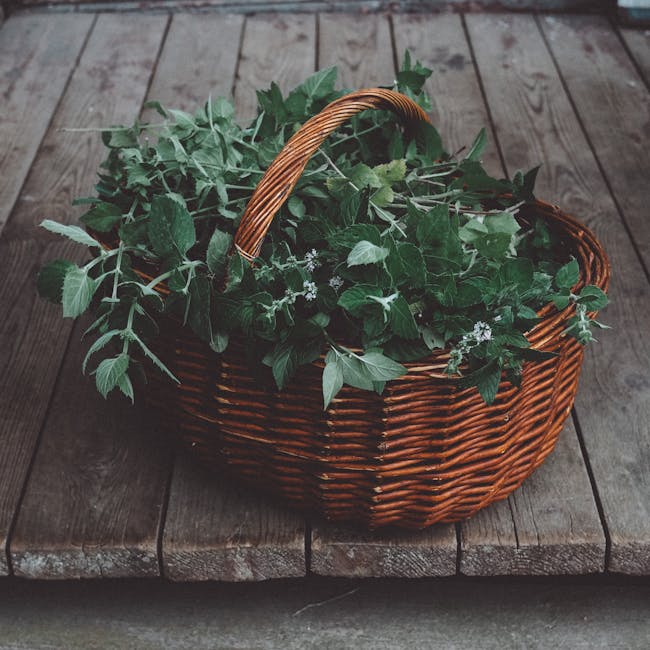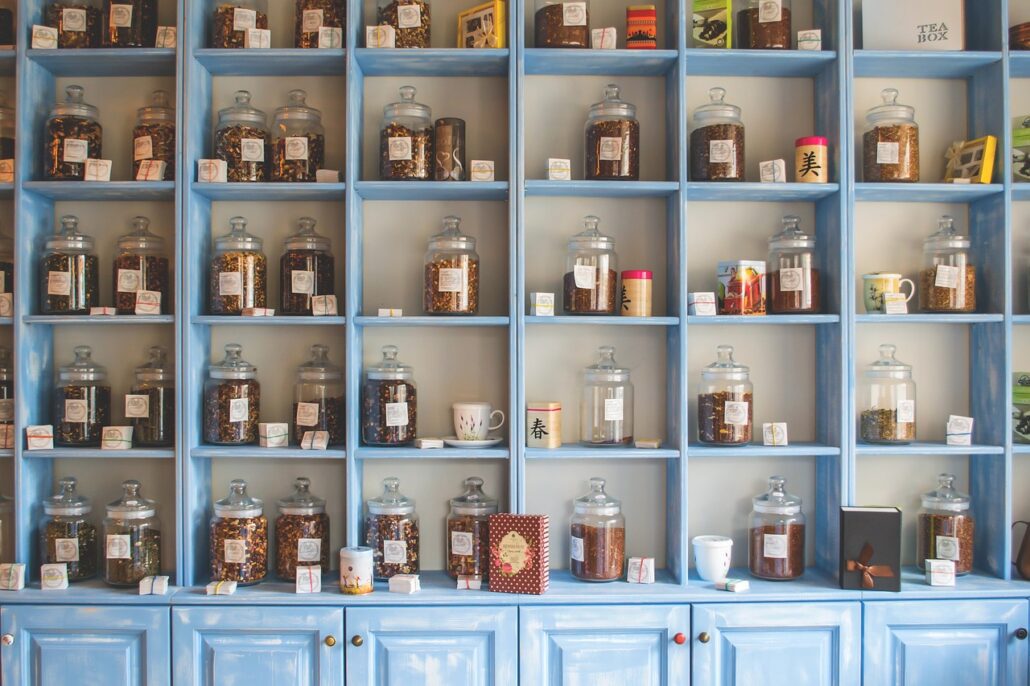
Plant Medicine is shown by science as key to Brain Health
Medicinal Plants Support Brain Health and Treat Memory Loss. Dementia Action Week – A New Take on Brain Health
Dementia Action Week is a national awareness campaign led by the Alzheimer’s Society, bringing individuals and organisations together to take action on dementia. This year, the focus is on diagnosis—raising awareness of the most common symptoms, encouraging earlier conversations, and breaking down barriers to getting help.
At Dilston Physic Garden, we’re proud to support this important initiative by offering a fresh, science-based perspective: how medicinal plants and natural remedies support brain health throughout life well before symptoms begin, and also provide effective pharmaceutical medicine alongside of conventional dementia care.
Here we look at the known factors that influence brain health as we age and increase our risk of memory loss and developing dementia such as Alzheimer’s. We look at the edible preventative plant medicine, and the plant pharmaceuticals, that are now shown by significant research to powerfully decrease these risk factors, and to treat memory loss and the associated symptoms of Alzheimer’s.
The Slow Build of Brain Disease

Neurodegenerative conditions like Alzheimer’s and Parkinson’s don’t just appear out of nowhere in later life. In fact, research shows the roots of these diseases often begin decades earlier — silently and gradually.
The most important risk factor for Alzheimer’s is age. While genetics do influence risk, especially through APOE ε4 and rare mutations that can cause for example early onset Alzheimer’s and familial Parkinson’s, dementia is rarely “destined” by genes alone, and lifestyle factors play the major role.
Underlying processes in the brain can all quietly damage the brain over time and reduce our cognitive capacity. These processes include:
*Chronic low-grade (or “silent”) inflammation and oxidative stress – these are major contributors to neurodegeneration
*Poor glucose metabolism, where low blood glucose can cause neurodegeneration
*Poor cardiovascular health, including atherosclerosis and hypertension that are linked to neurodegeneration.
*Blood flow and disruption of lipid metabolism, including cholesterol levels, where good (HDL) lipids improve amyloid clearance, delay amyloid fibrillization, suppress vascular inflammation, and maintain vascular health
*Long-term stress, anxiety, depression and insomnia that can all lead to changes in brain structure and function, contributing to cognitive decline and increasing the risk of dementia. For example, stress triggers the release of cortisol that can negatively impact brain regions crucial for memory, like the hippocampus, and sleep deprivation can disrupt the natural cleaning process of the brain, leading to a build-up of amyloid and tau proteins
*Lower production, as we age, of nerve cell growth factors that limit the brain’s ability to regenerate neurones
*Lower levels of the brain’s memory and focus signal, acetylcholine, as we age – it’s this ‘cholinergic’ system that is affected in Alzheimer’s and dementia with Lewy Bodies
*Emerging studies also show that our immune system and the bacteria in our gut (the microbiome) can also influence neuroinflammation and long-term brain health.
These changes may not cause symptoms for years, but they lay the groundwork for cognitive decline later in life.
By the time symptoms of memory loss appear, key parts of the brain may already be affected.
The Good Build of Brain Resilience

The good news is that the latest scientific research points to powerful brain beneficial plants as a key factor in maintaining brain health as we age.
Certain medicinal plants act to decrease all of the aforementioned factors that increase the risk of memory loss, Alzheimer’s and for example vascular dementia.
While many of the processes involved in neurodegeneration can also be influenced by lifestyle and environment – exercise, sunlight and social contact to improve the cardiovascular system, mood and sleep, and increasing cognitive ‘capacity’ by learning a new language, diet is considered the major player.
This means there’s a lot we can do right now to protect our brains as we age by utilising the range of medicinal plants that have been shown by scientific research to:
* Improve memory by increasing the brain signal acetylcholine, vital to attention, memory, and even consciousness itself.
* Significantly lower inflammation and oxidation, both key players in neurodegeneration.
* Protect neurones from various types of damage and promote neurogenesis (new brain cells) such as increasing brain-derived neurotrophic factor, which also decreases as we age.
* Protect against amyloid and tau accumulation, brain processes associated with Alzheimer’s.
*Control blood lipids and blood glucose and support good lipids, and so promote blood flow and energy supply to the brain.
*Support overall metabolic/ cardiovascular and immune function, diseases of which are shown to influence long-term brain health and inflammation.
*Provide antimicrobial support and promote a healthy microbiome – we all know the effects that microbes can have on our brain with post flu symptoms.
Don't Forget, Start Now

With this research showing the powerful effects of using medicinal plants, it’s not difficult to see that a few simple plant-based habits built over a lifetime can significantly help protect our brain. We need to start now.
Could the reason we experience so much disease be linked to the fact that we don’t consume the wide range of medicinal plants that we used to and we consume more processed foods (that contain few if any bioactive brain protective phytochemicals)?
This is why researchers and medical herbalists now recommend reviving the brain-supportive plant regime that we used to consume. And why we believe information on using medicinal plants for health should be an integral part our healthcare system, and our education system – taught alongside maths and English.
Prevention starts now —we’re never too young to look after our brain health, especially for those aged 40 and over. Though many people from a young age want to improve focus, attention and overall cognition.
Now is the ideal time for everyone to start nourishing the brain with evidence-backed edible medicinal plants, lifestyle changes, and professional plant medicine guidance.
Whether it’s daily herbal infusions, consuming food-based preventative medicine plants, adding a wide range of herbs and spices to our cooking, or even taking a preventative plant medicine ‘tonic’, all these approaches are shown by research to improve cognition and support long-term brain health.
However, taking plant medicine at therapeutic levels means seeking professional guidance. We strongly advise consulting a qualified NIMH medical herbalist before starting any new herbal regime, and a must if you’re taking medications or managing chronic conditions
What plants to consume for brain resilience?

Simply start consuming a regular wide range of not only fruit and vegetables, but of herbs and spices. Start including the following plants in your diet today. These are just the medicinal plants studied so far in controlled clinical trials to support memory and cognitive function, there are many more. They work by counteracting many of the risk factors for dementia, making them a powerful part of maintaining brain health as we age.
Take them as herbal teas, and add them—little and often—to your everyday meals: smoothies, salads, cereals, curries, stews, soups, sauces, gravies, pies, bakes, and even desserts. Once you discover their flavours and how they pair with different foods, you’ll find they brighten your meals—especially now that you know the good they’re doing for your brain.
In Europe and the Middle East: European Sage herb, Nigella seed, Rosemary leaf, Peppermint leaf, Lemon balm leaf, Blueberries, Pomegranate Seed Oil, Fenugreek seed and Saffron, and in Asia, Australasia and India: Ginkgo leaf, Bacopa herb, Chinese clubmoss, Ashwagandha leaf and berry and Turmeric root.
In epidemiological studies (that follow trends) those people who regularly consume fruit juice, a handful of walnuts, dark chocolate or a Mediterranean diet, have lower cognitive decline than those who do not.
Try a brain 'tonic'

As well consuming a wide range of medicinal plants in the past to maintain health, we also, when needed, took medicinal plants at a more concentrated level, known as a tonic.
Taken as supportive and preventative medicine, and tailored to individual needs – such as supporting memory and sleep or supporting memory and cardiovascular health, these tonics are often taken as ‘tinctures’ – where a wide range of the bioactive chemicals are extracted in a high-percent alcohol like vodka (for four weeks) and then taken daily – one teaspoon (5ml) two or three times a day.
Based on our previous research at Dilston Physic Garden, our pilot trial focused on memory enhancement and tested a combination of European sage, melissa and rosemary on word recall in healthy individuals. In line with the traditional use of these plants, results showed that participants, aged 63 years and under, who took the memory tincture improved their ability to recall words correctly by over 50%, compared to those in the same age group who did not take the tincture.
This study was published in Phytomedicine: A randomised double-blind placebo-controlled pilot trial of a combined extract of sage, rosemary and melissa, traditional herbal medicines, on the enhancement of memory in normal healthy subjects, including influence of age.
Plant medicines shown to clinically enhance cognition in Alzheimer's

European Sage, Lemon balm, Saffron, Ginkgo, Chinese clubmoss, Panax ginseng, and Bacopa are all plant pharmaceuticals shown in gold standard (controlled) clinical trials to improve cognition in people with Alzheimer’s disease, with few side-effects.
In these studies many people also had improvements in the psychiatric symptoms, including better mood, lower agitation, and improved general well-being.
Ginkgo extract has been shown to be as effective as the Alzheimer’s drug donepezil in the treatment of mild to moderate Alzheimer’s, but with fewer of the common side-effects such as nausea and diarrhoea.
Saffron extract is shown comparable with memantine in reducing cognitive decline in patients with moderate to severe AD, in addition to having a more favourable safety and side-effect profile.
Galanthamine, is one of the few Alzheimer drugs available, now synthesised, it’s originally derived from the bulbs of snowdrops and daffodils.
Huperzine A, from Chinese clubmoss, is available to treat Alzheimer’s in China and is available as a nutraceutical in the US. In addition to the cognitive-enhancing effect by increasing acetylcholine, like sage and other plant medicines, it also acts in several ways, such as protecting neurons against amyloid-induced oxidative injury and mitochondrial dysfunction, as well as up-regulating nerve growth factor.
Before taking any plant at a medicinal dose always consult a NIMH medical herbalist and your health care provider if you have any allergy, medical condition, are pregnant or are taking any medication, and do not stop taking any medication you have been prescribed.
Your path to wellness - discover more
Growing medicinal plants and reconnecting with their remarkable healing power is part of a forgotten heritage in the UK —a knowledge that is our right to reclaim as part of our national healthcare. It’s an inspiring journey, one that not only transforms your connection to nature but also introduces you to a vibrant, caring community.
Begin your journey today. Visit our tranquil physic garden in Northumberland and step onto the path to wellness. Discover how plants can support the mind, body, and soul. Explore a course or workshop near you, consult with a qualified NIMH medical herbalist, or attend a Power of Plants Festival run by the National Institute of Medical Herbalists.
Learn more about plant medicine for brain health right here at the physic garden. You can also explore further through our resource pages and published books. Dilston Physic Garden began with the research of its founder, Professor Emeritus Elaine Perry, into European sage as a traditional brain tonic. This research—conducted with Dr. Nicolette Perry at the Medical Research Council in Newcastle and King’s College London in 1996—revealed that sage could improve memory in the young, the elderly, and in people with Alzheimer’s. It helped spark a global interest in scientifically studying traditional memory plant medicine.
Today, that work continues at the garden, led by her daughter, Dr. Nicolette Perry.

